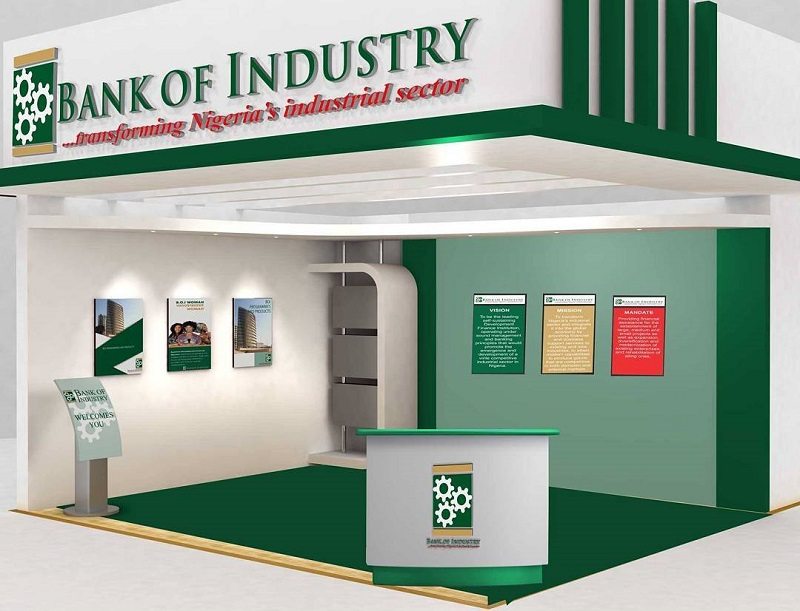Banking
What Jim Ovia Said About Rumoured Zenith Bank, Union Bank Merger

By Dipo Olowookere
On Monday, March 16, 2020, Zenith Bank Plc held its 29th Annual General Meeting (AGM) in Abuja, and it was an opportunity for shareholders of the bank to engage the top hierarchy of the company on some issues, including the financial statements and others.
Before the meeting, there were unconfirmed reports that Zenith Bank was planning to acquire Union Bank of Nigeria Plc and the shareholders used the occasion, the AGM, to ask Chairman of the bank, Mr Jim Ovia, if this was true.
However, this question was dodged by Mr Ovia as he said nothing about it, but went ahead to answer other questions asked by shareholders present at the meeting.
“Zenith Bank is committed to consistently deliver superior returns to our highly esteemed shareholders by ensuring that a good chunk of our profit is set aside for you.
“In a clear demonstration of this, we had declared and paid you an interim dividend of 30kobo per share in the course of the 2019 financial year.
“We hereby propose a final dividend of N2.50kobo per share. If approved, this will bring the total dividend for the year ended December 31, 2019, to N2.80kobo per share,” Mr Ovia said at the gathering.
During the AGM, shareholders of Zenith Bank unanimously approved the proposed final dividend of N2.50 per share, bringing the total dividend payment for the 2019 financial year to N2.80 per share with a total value of N87.9 billion.
Zenith Bank reaffirmed its leading position in the Nigerian banking industry posting an impressive pre-tax profit of N243 billion, representing a 5 percent increase over the N231.6 billion recorded in the corresponding period of 2018. Its post-tax profit stood at N208.8 billion over N193 billion, an increase of 8 percent, thus making Zenith Bank the first Nigerian bank to cross the N200 billion mark.
The bank’s result showed an increase in gross earnings from N662 billion to N630 billion, indicating dominance in market share, while its assets grew by 5 percent from the N5.9 trillion to N6.3 trillion, a growth driven by the 29 percent increase in non-interest income from N179.9 billion in 2018 to N231.1 billion in 2019.
The bank’s fees on electronic products continue to grow significantly with a 108 percent year-on-year from N20.4 billion in 2018 to N42.5 billion in 2019.
The drive for cheaper retail deposits coupled with the low-interest yield environment helped reduce the cost of funding from 3.1 percent to 3.0 percent.
However, this also affected net interest margin, which reduced from 8.9 percent to 8.2 percent in the current year due to re-pricing of interest-bearing assets.
Although returns on equity and assets held steady YoY at 23.8 percent and 3.4 percent respectively, the group still delivered an improved earnings per share (EPS) which grew 8 percent from N6.15 to N6.65 in the current year.
The group created new viable risk assets as gross loans grew by 22 percent from N2.016 trillion to N2.462 trillion. This was executed prudently at a low cost of risk of 1.1% and a significant reduction in the non-performing loan ratio from 4.98 percent to 4.30 percent.
Prudential ratios such as liquidity and capital adequacy ratios also remained above regulatory thresholds at 57.3 percent and 22.0 percent respectively.
Financial analysts noted this unprecedented feat by a Nigerian bank as remarkable, and an indication of strong financial leadership and resilience.
As a testament to this superlative performance, the bank emerged as the Most Valuable Banking Brand in Nigeria, for the third consecutive year, in the recently released Banker Magazine Top 500 Banking Brands 2020, the Best Bank in Nigeria 2020 in the Global Finance World’s Best Banks Awards 2020 and the Bank of the Decade (People’s Choice) at the Thisday Awards 2020.
In addition, the Bank was also voted as the Best Commercial Bank in Nigeria 2019 by the World Finance and the Best Digital Bank in Nigeria 2019 by Agusto & Co.
Banking
CBN Approves BDCs Participation in FX Market, Caps Sale at $150,000 Weekly

By Adedapo Adesanya
The Central Bank of Nigeria (CBN) has approved weekly foreign exchange (FX) purchases for Bureaux de Change (BDC) operators, with a cap of $150,000, as part of efforts to improve foreign exchange liquidity in the retail segment of the market and meet the legitimate needs of end users.
This comes as the apex bank once again approved the participation of licensed BDCs in the Nigerian Foreign Exchange Market (NFEM), noting that utilisation complies with existing BDC operational guidelines.
Under the new directive contained in a circular signed by the Director of the Trade and Exchange Department, Mr Musa Nakorji, all BDCs duly licensed by the CBN are permitted to access foreign exchange through any Authorised Dealer Bank of their choice, at the prevailing market rates.
The move, according to the circular, aims to deepen market efficiency and ensure broader access to foreign exchange across the economy.
The central bank, however, imposed strict compliance and risk-management conditions on the transactions. Authorised dealers are required to conduct full Know-Your-Customer (KYC) and due diligence checks on BDC clients before any FX sale.
To strengthen transparency and accountability, the CBN directed that all licensed BDCs must submit timely and accurate electronic returns in line with extant regulations. Any unutilised foreign exchange must be sold back to the market within 24 hours, as BDCs are prohibited from holding FX positions purchased from the NFEM.
The circular further restricts settlement practices, mandating that all FX transactions be conducted through settlement accounts with licensed financial institutions. Third-party transactions are prohibited, while cash settlement is limited to a maximum of 25 per cent of each transaction amount.
Overall, the directive reflects the CBN’s broader strategy to balance market access with strong regulatory oversight, ensuring liquidity in the foreign exchange market while safeguarding financial system integrity.
Recall that earlier this week, the Governor of the Central Bank of Nigeria (CBN), Mr Yemi Cardoso, explained that the central bank now allows the foreign exchange market to largely determine prices, while the bank steps in to buy foreign exchange when necessary.
The CBN boss said recent reforms have also made foreign exchange more accessible to ordinary Nigerians, especially those travelling abroad, while warning that Nigerians who are holding foreign currency without real need that such actions could lead to losses.
Banking
Proposed Bidvest Bank Acquisition by Access Bank Hits Regulatory Brick Wall

By Aduragbemi Omiyale
The proposed acquisition of South African financial institution, Bidvest Bank by a Nigerian lender, Access Bank Plc, has hit a brick wall.
Access Holdings Plc, the parent company of the Nigerian bank, had announced on December 12, 2024, its intention to completely takeover Bidvest Bank.
Talks regarding the 100 per cent stake acquisition began between the two banks and January 26, 2026, was fixed as the long-stop date by which all conditions required for the completion of the deal.
However, the day has come and gone with the conclusion of the transaction still hanging, according to Access Bank in a statement on Tuesday, February 10, 2026.
The company disclosed that certain conditions, including regulatory requirements, were not fully met as of the expiration of the long-stop date.
While Access Bank thanked the board and management of Bidvest for their patience and support throughout this process, it noted that the brick wall experienced in the transaction “reflects the complexities and extended timelines associated with multi-jurisdictional regulatory and transactional processes.”
However, the chief executive of Access Bank, Mr Roosevelt Ogbonna, said the organisation remains “constructively engaged with stakeholders on this transaction towards finding a potential path to closure.”
“This initial outcome does not diminish our confidence in South Africa’s financial ecosystem,” he declared, pointing out that the lender remains “focused on building Africa’s most respected financial institution, strengthening our trade finance capabilities and delivering long-term value to customers, partners and communities across all our markets.”
Banking
CBN Grants Bank of Industry Approval to Operate Non-Interest Banking

By Adedapo Adesanya
The Bank of Industry (BoI) has secured regulatory approval from the Central Bank of Nigeria (CBN) to offer Non-Interest Banking (NIB) services, marking a major expansion of its financing framework.
The approval was disclosed in a statement by the BoI Managing Director, Mr Olasupo Olusi, on Sunday, February 8, 2026.
The move is expected to strengthen the bank’s role in promoting sustainable industrial development and improving access to finance for underserved and high-impact business segments across Nigeria.
With the approval, BoI is authorised to commence non-interest banking operations, providing ethical, asset-backed financing options that prohibit interest and promote risk-sharing.
The initiative aligns with growing demand for alternative financing structures that support inclusive growth and social development objectives.
Mr Olusi described the approval as a significant milestone in the bank’s growth and long-term development agenda, adding that it positions BoI to deepen its contribution to Nigeria’s industrialisation drive through tailored financial solutions.
“This development marks a significant milestone in the Bank of Industry’s growth and long-term development agenda,” Olusi said.
“It positions the bank to further advance Nigeria’s sustainable and inclusive industrial development through tailored financial solutions for underserved and high-impact business segments.”
“Under this framework, BoI will be able to finance assets and raw materials for customers using approved non-interest banking products,” he added.
Mr Olusi noted that the approval underscores the CBN’s confidence in BoI’s governance and commitment to responsible financing.
He said the licence would allow the bank to scale its operations, introduce innovative financing solutions, deepen support for Micro, Small and Medium Enterprises (MSMEs), and reach a new category of borrowers who were previously unable to access BoI’s funding.
Reconstructed in 2001 from the former Nigerian Industrial Development Bank (NIDB) Limited, BoI was originally incorporated in 1959 to transform the country’s industrial sector by providing long-term, low-interest financing and advisory support to various enterprises.
The introduction of a non-interest banking window is expected to broaden BoI’s financing toolkit and attract new pools of ethical and faith-based capital.
-

 Feature/OPED6 years ago
Feature/OPED6 years agoDavos was Different this year
-
Travel/Tourism10 years ago
Lagos Seals Western Lodge Hotel In Ikorodu
-

 Showbiz3 years ago
Showbiz3 years agoEstranged Lover Releases Videos of Empress Njamah Bathing
-

 Banking8 years ago
Banking8 years agoSort Codes of GTBank Branches in Nigeria
-

 Economy3 years ago
Economy3 years agoSubsidy Removal: CNG at N130 Per Litre Cheaper Than Petrol—IPMAN
-

 Banking3 years ago
Banking3 years agoSort Codes of UBA Branches in Nigeria
-

 Banking3 years ago
Banking3 years agoFirst Bank Announces Planned Downtime
-

 Sports3 years ago
Sports3 years agoHighest Paid Nigerian Footballer – How Much Do Nigerian Footballers Earn










